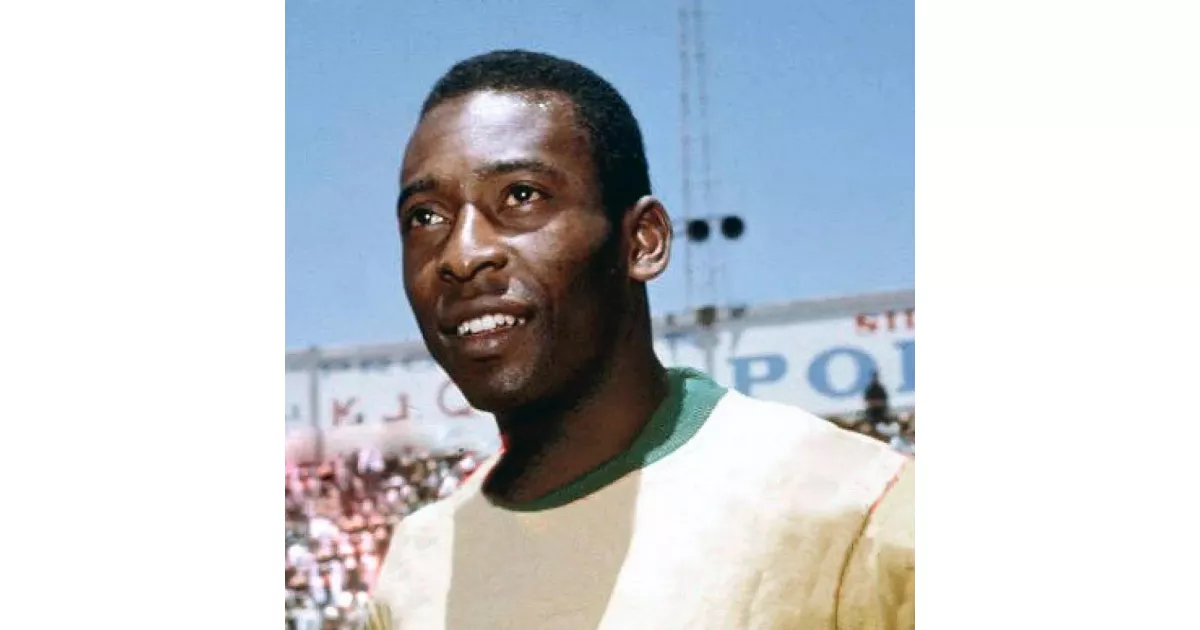Discover the career path of Pelé, from the first major opportunity to industry-changing achievements.
Pelé, born Edson Arantes do Nascimento, was a Brazilian professional footballer celebrated as one of the greatest of all time. As a forward, he achieved remarkable success and popularity, becoming a global icon in the 20th century. He holds a Guinness World Record for scoring 1,279 goals in 1,363 games. Pelé was named Athlete of the Century by the International Olympic Committee in 1999 and included in Time's list of the 100 most important people of the 20th century. In 2000, he was voted World Player of the Century by IFFHS and was a joint winner of the FIFA Player of the Century award.
June 1956: Signing with Santos FC
In June 1956, Pelé signed a professional contract with Santos FC after impressing coach Lula during a trial.
September 1956: Senior Team Debut
On September 7, 1956, at the age of 15, Pelé made his senior team debut for Santos against Corinthians de Santo André, scoring his first goal in a 7–1 victory.
1957: Starting Place in First Team
In 1957, Pelé was given a starting place in the first team of Santos and, at the age of 16, became the top scorer in the league.
1958: European Clubs' Interest
After the 1958 World Cup, wealthy European clubs tried to sign Pelé, but Santos declined to let him leave. Inter Milan even managed to get him a regular contract, but Angelo Moratti was forced to tear the contract up at the request of Santos's chairman.
1958: Emergence at the 1958 World Cup
Following his emergence at the 1958 World Cup he was nicknamed O Rei ("The King").
1958: Participated in FIFA World Cup
In 1958, Pelé participated in the FIFA World Cup where he gave the assist to Vavá's second goal against the USSR. He scored his first World Cup goal against Wales, becoming the youngest ever World Cup goalscorer. He also scored a hat-trick against France in the semi-final, becoming the youngest player in World Cup history to do so.
1958: Campeonato Paulista Win
In 1958, Pelé won his first major title with Santos, the Campeonato Paulista, finishing as the top scorer with 58 goals.
August 1959: Most Memorable Goal
On August 2, 1959, Pelé scored what he considered his most memorable goal at the Estádio Rua Javari in a Campeonato Paulista match against Clube Atlético Juventus.
1959: Played in South American Championship
In 1959, Pelé played in the South American Championship, where he was named the best player of the tournament and became the top scorer with eight goals. Brazil finished second despite being unbeaten.
1960: Regaining Campeonato Paulista Trophy
In 1960, Pelé scored 33 goals to help Santos regain the Campeonato Paulista trophy and the club also won the Taça Brasil.
March 1961: Gol de Placa
In March 1961, Pelé scored the gol de placa against Fluminense at the Maracanã, leading to a plaque being commissioned in dedication to "the most beautiful goal in the history of the Maracanã".
1962: European Clubs' Interest
After the 1962 World Cup, wealthy European clubs tried to sign Pelé in vain.
1962: Played in the 1962 World Cup
In 1962, Pelé was considered the best player in the world. In the first match of the 1962 World Cup in Chile, against Mexico, Pelé assisted the first goal and then scored the second one. He got injured in the next game and had to sit out the rest of the tournament. In 2007, he retroactively received a winner's medal.
1962: Copa Libertadores and Intercontinental Cup Wins
In 1962, Santos had a successful Copa Libertadores season, defeating Peñarol in the finals with Pelé scoring twice. Santos would also win the 1962 Intercontinental Cup against Benfica, with Pelé scoring a hat-trick in Lisbon.
1962: 1962 final
In 1962, Santos reached the semi-finals of the Copa Libertadores, meeting Peñarol in a rematch of the 1962 final.
1963: Copa Libertadores and Intercontinental Cup Wins
In 1963, Pelé led Santos to win the Copa Libertadores and the Intercontinental Cup.
1963: Retaining Copa Libertadores Title
In 1963, Santos retained the Copa Libertadores title after victories over Botafogo and Boca Juniors, with Pelé scoring key goals. Santos also won the Rio-São Paulo tournament and retained the Intercontinental Cup and the Taça Brasil.
1964: Campeonato Paulista and Taça Brasil Wins
In 1964, Santos won the Campeonato Paulista, with Pelé netting 34 goals. Santos also shared the Rio-São Paulo title with Botafogo and won the Taça Brasil for the fourth consecutive year.
December 1965: Taça Brasil Win
In December 1965, Santos won the Taça Brasil, their fifth straight Brazilian league title, with Pelé scoring the last goal in the final series.
1965: Copa Libertadores Semi-Finals
In 1965, Santos reached the semi-finals of the Copa Libertadores, meeting Peñarol in a rematch of the 1962 final. Peñarol eliminated Santos 2–1 after a playoff, although Pelé finished as the top scorer of the tournament with eight goals.
1966: Losing the Taça Brasil
In 1966, Santos failed to retain the Taça Brasil as Pelé's goals were not enough to prevent a defeat by Cruzeiro in the final series.
1966: Changes to the 1966 squad
In 1966, major changes were made to Brazil's squad for the tournament, due to the retirement of players like Garrincha, Nilton Santos, Valdir Pereira, Djalma Santos, and Gilmar.
1967: Campeonato Paulista Win
In 1967, Santos won the Campeonato Paulista.
1968: Campeonato Paulista Win
In 1968, Santos won the Campeonato Paulista.
November 1969: 1,000th Goal
On November 19, 1969, Pelé scored his 1,000th goal in all competitions in a match against Vasco da Gama at the Maracanã Stadium from a penalty kick.
1969: Played World Cup Qualifying Matches
In early 1969, Pelé was called to the national team and played in six World Cup qualifying matches, scoring six goals.
1970: 1970 World Cup-winning captain
Brazil's 1970 World Cup-winning captain Carlos Alberto Torres said about Pelé: "His great secret was improvisation. Those things he did were in one moment. He had an extraordinary perception of the game."
1970: Embracing Bobby Moore at the 1970 World Cup
During the 1970 World Cup, Pelé's embrace of Bobby Moore after the Brazil vs. England game exemplified sportsmanship, capturing the mutual respect between the two players, as noted by The New York Times. The image showed no gloating from Pelé or despair from Moore.
1970: Played in the Final at the Azteca Stadium
In 1970, Pelé played in the final against Italy at the Azteca Stadium in Mexico City. He scored the opening goal and assisted on two others, contributing to Brazil's 4–1 victory and earning the Golden Ball award.
1970: Played in the 1970 World Cup
In 1970, Pelé played in what was expected to be his last World Cup in Mexico, as part of a squad considered one of the greatest football teams in history.
1970: World Cup performance
In 1970, Pelé scored four goals and had seven assists in the World Cup appearances
1970: The "Pelé Pact" in 1970
In the lead up to the 1970 World Cup, Adidas and Puma established the "Pelé Pact", where both German sportswear companies, owned by the rival Dassler brothers, agreed not to sign a deal with Pelé, feeling that a bidding war would become too expensive.
1970: Encountered extraordinary save by England Goalkeeper
In their 1970 World Cup match against England, Pelé encountered an extraordinary save by England goalkeeper Gordon Banks.
July 1971: Last International Match
On July 18, 1971, Pelé played his last international match against Yugoslavia in Rio de Janeiro. With Pelé on the field, the Brazilian team's record was 67 wins, 14 draws, and 11 losses.
December 1973: Played Farewell Game for Garrincha
On December 19, 1973, Pelé played for a Brazil XI side against the Rest of The World in a farewell game for Garrincha, scoring the equalizer in an eventual 2–1 win.
1973: Exhibition Game in Egypt
In 1973, Pelé traveled to Egypt and played with Santos against Al Ahly. This trip was days after his team's trip to Kuwait to play a match against Qadsia.
1974: Retired from Brazilian Club Football
After his 19th season with Santos in 1974, Pelé retired from Brazilian club football, but continued to play occasionally in official matches.
1975: Signed with New York Cosmos
In 1975, Pelé came out of semi-retirement to sign with the New York Cosmos of the North American Soccer League (NASL). The Cosmos introduced Pelé at a press conference, increasing public awareness and interest of the sport in the US.
1975: Played Friendly Game in Lebanon
In 1975, one week before the Lebanese Civil War, Pelé played a friendly game for the Lebanese club Nejmeh against a team of Lebanese Premier League stars, scoring two goals which were not included in his official tally.
June 1977: Attracted Record NASL Fans
In June 1977, The Cosmos attracted an NASL record 62,394 fans to Giants Stadium for a 3–0 victory over the Tampa Bay Rowdies, with a 37-year-old Pelé scoring a hat-trick.
October 1977: Closed Out Career in Exhibition Match
On October 1, 1977, Pelé concluded his career in an exhibition game between the Cosmos and Santos at Giants Stadium. Pelé played the first half with the Cosmos and the second with Santos, scoring his final career goal for the Cosmos with a free-kick, the Cosmos winning 2-1.
1977: Pelé's retirement in 1977
After his retirement in 1977 Pelé played eight exhibition games and scored three goals.
1977: Retirement
In 1977, Pelé retired from professional football and became a worldwide ambassador for the sport.
1981: Starred in "Escape to Victory"
In 1981, Pelé starred in the film "Escape to Victory", about a World War II-era football match between Allied prisoners of war and a German team, alongside other footballers and actors Michael Caine and Sylvester Stallone.
July 1983: Played Friendly Match in Goiânia
On July 21, 1983, the 42-year-old Pelé played for another Brazil XI side against a South Brazil team in Goiânia in a friendly match organized by Zico to benefit the victims of a flood in Santa Catarina; he scored a free-kick in a 1–2 loss.
1992: Appointed UN ambassador for ecology and the environment
In 1992, Pelé was appointed a UN ambassador for ecology and the environment.
1994: Pelé appointed UNESCO Goodwill Ambassador
In 1994, Pelé was appointed as a UNESCO Goodwill Ambassador.
January 1995: Minister of Sports in January 1995
In January 1995, Pelé was appointed by Fernando Cardoso as minister of sports.
1995: Appointed as extraordinary minister for sport
In 1995, Pelé was appointed by Brazilian president Fernando Henrique Cardoso to the position of extraordinary minister for sport, during which he proposed the "Pelé law" to reduce corruption in Brazilian football.
April 1998: Resigned from the post in April 1998
Pelé resigned from his post as minister of sports on 30 April 1998.
1998: Cardoso eliminated the post of sports minister
In 1998, Brazilian president Fernando Henrique Cardoso eliminated the post of sports minister, ending Pelé's tenure in that role.
2006: World Economic Forum Appearance
In 2006, Pelé appeared at the World Economic Forum in Davos, speaking on the role of sports in development.
2007: Pelé received winner's medal retroactively
In 2007, Pelé retroactively received his winner's medal for the 1962 World Cup, following a change in FIFA regulations that made the entire squad eligible.
August 2010: Honorary president of revived New York Cosmos
On 1 August 2010, Pelé was introduced as the honorary president of a revived New York Cosmos, aiming to field a team in Major League Soccer.
August 2011: Rumors of cameo role for Santos in FIFA Club World Cup
In August 2011, ESPN reported that Santos was considering bringing Pelé out of retirement for a cameo role in the 2011 FIFA Club World Cup, although this proved false.
August 2012: Attendance at 2012 Olympic hunger summit and closing ceremony
In August 2012, Pelé attended the 2012 Olympic hunger summit hosted by British prime minister David Cameron and appeared at the closing ceremony of the 2012 Summer Olympics in London.
2016: Auctioned collection for charity
In 2016, Pelé auctioned more than 1600 items from his collection and raised £3.6 million for charity.
2018: Founded the Pelé Foundation
In 2018, Pelé founded his charitable organization, the Pelé Foundation, to empower impoverished and disenfranchised children.
June 2022: Public plea to Vladimir Putin in June 2022
On June 1, 2022, Pelé published an open letter to the President of Russia Vladimir Putin on his Instagram account, in which he made a public plea to stop the "evil" and "unjustified" Russian invasion of Ukraine.
2022: Puma paid Pelé $2.85 million in 2022
In 1970, Puma broke the "Pelé Pact" by signing Pelé, and in addition to paying him a percentage of Puma King boot sales, gave him $120,000 ($2.85 million in 2022) to tie his laces prior to Brazil's quarter-final against Peru to advertise their boots.
Mentioned in this timeline

Pepsi is a cola-flavored carbonated soft drink and the flagship...
Adidas AG is a German multinational corporation the largest sportswear...

Neymar Jr a Brazilian professional footballer is renowned for his...

Vladimir Vladimirovich Putin is a Russian politician and former intelligence...

Instagram is a photo and video-sharing social networking service owned...
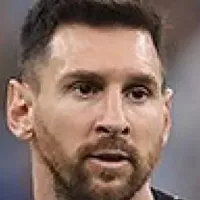
Lionel Messi is an Argentine professional footballer widely considered one...
Trending
Byrum Brown is an American college football quarterback currently playing for the South Florida Bulls His primary role is as...
Celtic F C is a professional football club based in Glasgow Scotland competing in the Scottish Premiership Founded in to...
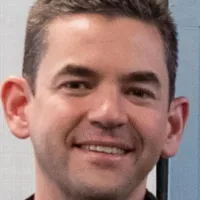
Jared Isaacman is an American billionaire entrepreneur known for founding Draken International a private air force provider and Shift Payments...
Susan Boyle is a Scottish singer who gained international recognition after her appearance on Britain's Got Talent in Her performance...
2 months ago ACA Subsidies Expiration Fuels Premium Fears Amid Government Shutdown, Impacting Covered California
1 month ago Gary Cole Reveals Original 'Brady Bunch' Cast Reaction to 1995 Movie.
Popular

Candace Owens is an American conservative political commentator and author...
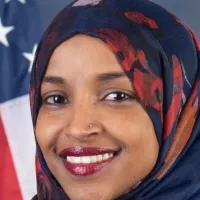
Ilhan Omar is an American politician currently serving as the...

XXXTentacion born Jahseh Dwayne Ricardo Onfroy was a controversial yet...
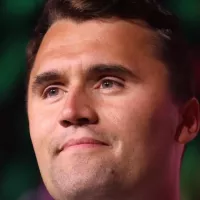
Charles James Charlie Kirk was a prominent American right-wing political...
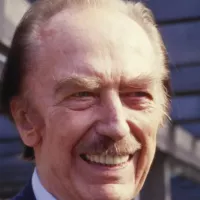
Frederick Christ Trump Sr - was an American real estate...
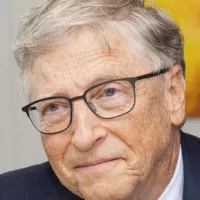
Bill Gates an American businessman and philanthropist revolutionized personal computing...
